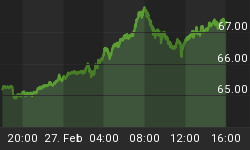Hurricane Sandy was one of the worst natural disasters the east coast has ever seen. Clean-up and recovery will take months, if not years and estimates run in the tens of billions of dollars. Parts of New York and New Jersey will never be the same. Entire seashore communities have been wiped out, but the determination to rebuild has been lauded as courageous and admirable. Yet as with all natural disasters, Sandy raises uncomfortable questions about the extent to which taxpayers should fund the cleanup and the extent to which governmentprograms create moral hazards.
For example, FEMA and the National Flood Insurance Program (NFIP) are expected to pick up the tab for much of the flood damage caused by the hurricane. Of course this will mean more federal debt and inflation for the rest of us, since the program only has about $4 billion to work with and is already $18 billion in debt from hurricanes Katrina and Rita. Many think there is a need for the government to provide flood insurance of this kind. After all, the market would never provide insurance in flood prone areas at an affordable price. But shouldn't that tell us something?
Shouldn't that tell us that it is a losing proposition to insure homes in coastal areas and flood plains often threatened by severe and destructive weather patterns? And if it's a losing proposition, should taxpayers subsidize the inevitable losses arising from federal flood insurance?
The NFIP disguises the real cost of flood insurance in flood prone areas, which influences homebuilding and sales in such areas. Recklessly taking unwise risks when risk is underpriced is known as moral hazard. When politicians decide that private insurance premiums are too high, as with houses built in flood plains, the solution is to under price the risk through federal subsidies. The obvious and expected outcome is more danger to life and limb when disaster strikes.
Even NFIP has been forced to raise rates significantly in coastal areas, and is now dropping second homes from coverage altogether,
Many assume it is compassionate to entrust government central planners with disaster recovery. However, the greatest compassion brings results, not just good intentions. And we've seen how bureaucratic organizations like FEMA mismanaged recovery and relief in the wake of hurricanes Katrina and Ike. Organizations such as the Red Cross and private companies like Home Depot and Duracell have already stepped in admirably to help those in need, and we can only hope FEMA has learned this time not to impede and frustrate private efforts as they have in the past.
Above all, my thoughts and prayers are with the victims of Hurricane Sandy in this tremendously difficult time and hope they can get their lives put back together as quickly and seamlessly as possible.















